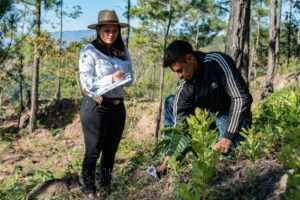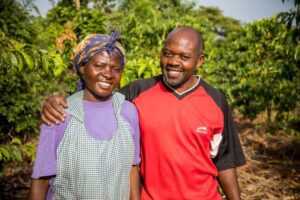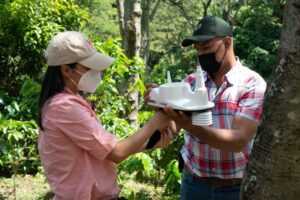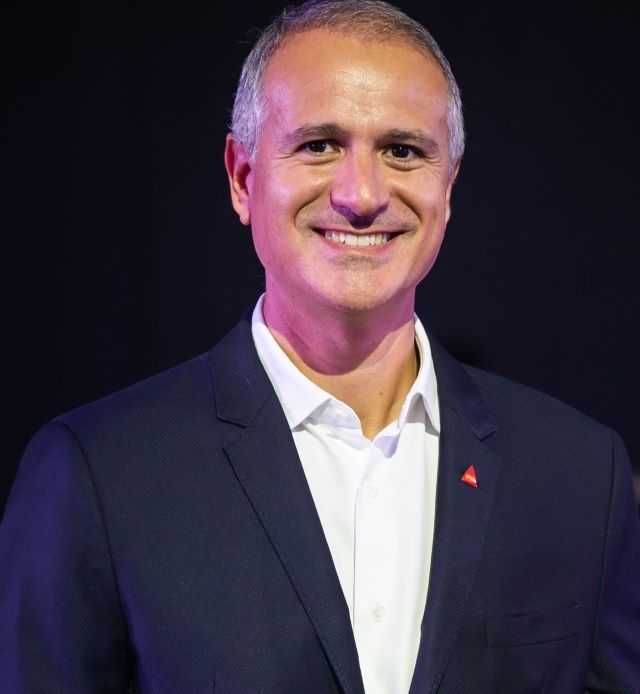MILAN – The non-profit partnership International Coffee Partners (ICP) has recently announced its new Chair: Rui Miguel Nabeiro, CEO of Grupo Nabeiro/Delta Cafés, Portugal, takes over from Kathrine Löfberg, Chair of the Board at Löfbergs, Sweden. Under his lead, ICP plans to enhance its activities related to the megatrends of youth and climate change.
We spoke directly with the new chair Rui Miguel Nabeiro, CEO of Grupo Nabeiro/Delta Cafés, Portugal.
Nabeiro, what does taking over this role at the top of the ICP represent for you?
“It’s with a great sense of responsibility that I assume the presidency of ICP on behalf of Delta. It’s a true honor and a privilege to lead worldwide sustainability projects of this importance, where we have such relevant brands with such history. It is an incredible opportunity to leave a positive mark on the world of coffee, on its origins, and, above all, to improve the livelihood and ensure business continuity for coffee-producing families and their youth in countries such as Ethiopia, Brazil, Uganda, and Indonesia, among many others.
When ICP presented us with the project and extended an invitation to join this association five years ago, we immediately realized its relevance and impact, and that it was a project that would help us perpetuate something that has always been defended and practiced by our company, the development of close and symbiotic relationships with the various communities with which we come into contact, contributing and ensuring the sustainability and preservation of the coffee plant.
I am thrilled to support the progress of ICP’s joint work and continue it, developing its activities with a specific focus on youth and climate change. We aim to enable youth to explore agriculture and coffee as pillars of their livelihood and build partnerships that help maximize the impact of ICP’s work.”
Under your leadership, after seven years together with Kathrine Löfberg, what does the future hold for the ICP?
“In the next years, we will focus on developing ICP’s activities with regard to youth and climate change, and expand cooperations and partnerships. A major challenge in coffee-growing regions is that youth often migrate from rural to more urban areas. They are
hoping for a better life and opportunities there. ICP’s goal is to empower youth within their rural communities, and create prospects for them on-site – within and outside agriculture or the coffee industry.

Developing their social and technical capacities shall enable them to develop their own living. With regard to climate change, ICP plans to further strengthen the initiative for coffee&climate (c&c) which was founded by the shareholders of ICP together with the Deutsche Gesellschaft für Internationale Zusammenarbeit (GIZ) in 2010. Today, the initiative comprises several private company members, the Swedish International Development Cooperation Agency Sida as public partner, and the foundation Hanns R. Neumann Stiftung as implementing partner. Kathrine Löfberg is the current Chair of c&c. Therefore, we will continue to work together closely on these common subjects.
As ICP, we are willing to share our knowledge and learnings, to constantly keep learning, and to commit on a long-term basis. Private and public partners can include experiences of ICP in their work. At the same time, building partnerships also helps maximize the impact of our work.”
In the next few years, ICP plans to further develop its activities with a specific focus on youth and climate change: what are the next steps of the project coffee&climate?
“The initiative for coffee&climate strives to support smallholder coffee farming families and their communities to effectively respond to climate change, increase their resilience and improve their livelihoods. They receive access to practical tools and knowledge, allowing them to adapt their farms to climate change, minimize carbon emissions and enhance the carbon storage potential in coffee landscapes. 136,000 coffee farming households have been trained on c&c’s climate-smart techniques so far. In the upcoming years, c&c aims at continuously further identifying new tools and practices developed by farmers and research to strengthen coffee production and diversified production systems.

We are also promoting regenerative agriculture and agroforestry. Another goal is scaling climate-smart practices through expanding the partnership with dedicated companies as members of the initiative, training of trainers, Communities of Practice, and digitalization of the c&c Toolbox.”
How will you act to make working at the roots attractive and profitable again for young people?
“ICP works directly together with youth, along with our implementing partner Hanns R. Neumann Stiftung, local organizations, and business leaders. We provide them with entrepreneurship training, startup capital, and additional services. We are pointing out business options inside and outside agriculture and coffee cultivation.
But, of course, in the regions where ICP is active, coffee holds very good opportunities for people to create a business, improve their income, and lead a successful life. So, we are supporting specifically youth to develop a passion for this wonderful commodity. For instance, we offer special training on coffee preparation and coffee cupping for the younger generation. All with the goal to empower them and create prospects for them to make a living within their communities.”
We have talked about sustainability, but another topic that often runs parallel is digitisation: how will ICP act on this front?

“In all our focus countries, digital formats and online trainings are increasingly being utilized in farmer extension. Farmer organizations are supported in using appropriate tools for managing their operations and establishing data bases of their members. On the farms, families learn how to use digital tools to improve their
farming practices like through satellite-connected weather stations that record weather and soil conditions, give forecasts, and guide farmers how to manage their farms. Through apps they can view the current and historic data and take decisions. Drones help them to evaluate the status of their farms from the air.
And we are in the process of updating the c&c toolbox to a progressive web app that can also be used offline on smart devices to address the lack of access to mobile internet in some regions or for some families. We believe that the digitization in coffee regions will grow at increasing pace and ICP stays up to date to be ready to address those new needs. Also, the collection of data on digital platforms supports us to learn from our project results and to adapt our approaches accordingly. To add to our personal trainings, we also utilize training videos for farmer families to be able to review practices on demand.
Those videos can be shared via Messengers or on Learning platforms, that country offices build. Learning through video will also be a part of the relaunched c&c toolbox.”
Will you involve other origins in your next projects?
“ICP has chosen six focus countries for its operations: Honduras, Brazil, Ethiopia, Uganda, Tanzania, and Indonesia. This continuous and long-term presence gives ICP a deep insight into local conditions, enables profound practical experience, lends a high degree of credibility, and creates a strong relationship of trust with the farmers and partners on the ground. ICP, thus, is able to assume a leadership role in promoting sustainability in these regions and fostering a holistic approach at the level of farmer families and communities.”









 CAPS: the new proprietary system using capsules made of 85% recycled aluminium
CAPS: the new proprietary system using capsules made of 85% recycled aluminium







